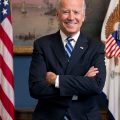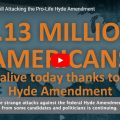Something that always bothers me about campaign season is how many candidates get away with telling lies through a series of true statements—and how few voters catch what is happening. Does it sound impossible that someone could tell lies by speaking the truth? Here’s how it’s done.
Politicians will string together a series of true statements, and they will leave you to make your own assumptions about their position or beliefs. Even worse, sometimes they will put together a bunch of unrelated, true statements. Through these statements, a candidate can make voters draw one set of conclusions about him when the truth is something entirely different.
A good example of this happened during a campaign many years ago: A candidate running for office launched a series of recorded, automated phone calls in which he said something to the effect of, “I supported legislation for Medicaid, but when Medicare came up, my opponent tucked tail and ran.” Did you catch that? It’s easier when you see it in writing, but harder to pick up on when you hear it spoken quickly on the phone: “Medicare” and “Medicaid” are two completely different issues, and the legislation in question was as well. Both statements are true, but taken together they misrepresent what happened.
Another example of what I’m talking about happens when candidates discuss the economy. A candidate or his surrogates will say something like, “My economic plan is the best. The secret to a strong economy is a strong middle-class. America has enjoyed some periods of great economic success and great economic depression, and it’s time for us to get America back on track.” The candidate offers his opinion that his economic plan is the best, and then he spouts a bunch of rhetoric about strong economies, but he never connects the two. He never says how his economic plan is going to lead to that stronger economy.
Or how about religion? If you ask a candidate, “What role does your faith play in your legislative decisions?” he or she might say something to the effect of, “Well, my beliefs are an essential part of my life and who I am. Our nation has a very strong religious heritage. The free exercise of religion is a core part of who we are, so when you make policy, I believe you really cannot separate your core, fundamental beliefs from the laws you’re making. Your faith and personal beliefs are absolutely integral to that process.”
Deliver those words with the right vocal inflection and body language, and you’ll have every person in the room convinced you’re Billy Graham. The problem is anyone can honestly say those words. An atheist can acknowledge that America has a strong religious heritage; that a person’s faith and beliefs impact their policymaking; that their beliefs define them; and that the free exercise of religion is a core part of who we are (after all, it’s in the Bill of Rights). It does not mean they are a Christian (or even religious), and it certainly does not mean they somehow support traditional values—but a lot of people will inject their own conclusions between the lines of the conversation, and come away with a glowing picture of a devout person deeply grounded in faith.
Now, I want to make it clear I believe that while most candidates would rather accentuate the positive and downplay the negative, they are also honest. Most don’t want to tell you a lie; at best, they just won’t answer the hard questions if they don’t want you to know the truth about them. But a few are not so on the up-and-up, and those few tend to take the path of “technical” honesty. They tell you the truth, but they do it in such away that you leave believing a lie. It’s a savvy move, and unless we as voters are equally savvy, we will be deceived about the people we are electing.
With less than two months to the election, I hope we will each pay attention when our candidates speak; listen for non sequiturs; and discern when people are telling the truth and when they are trying to mislead.



